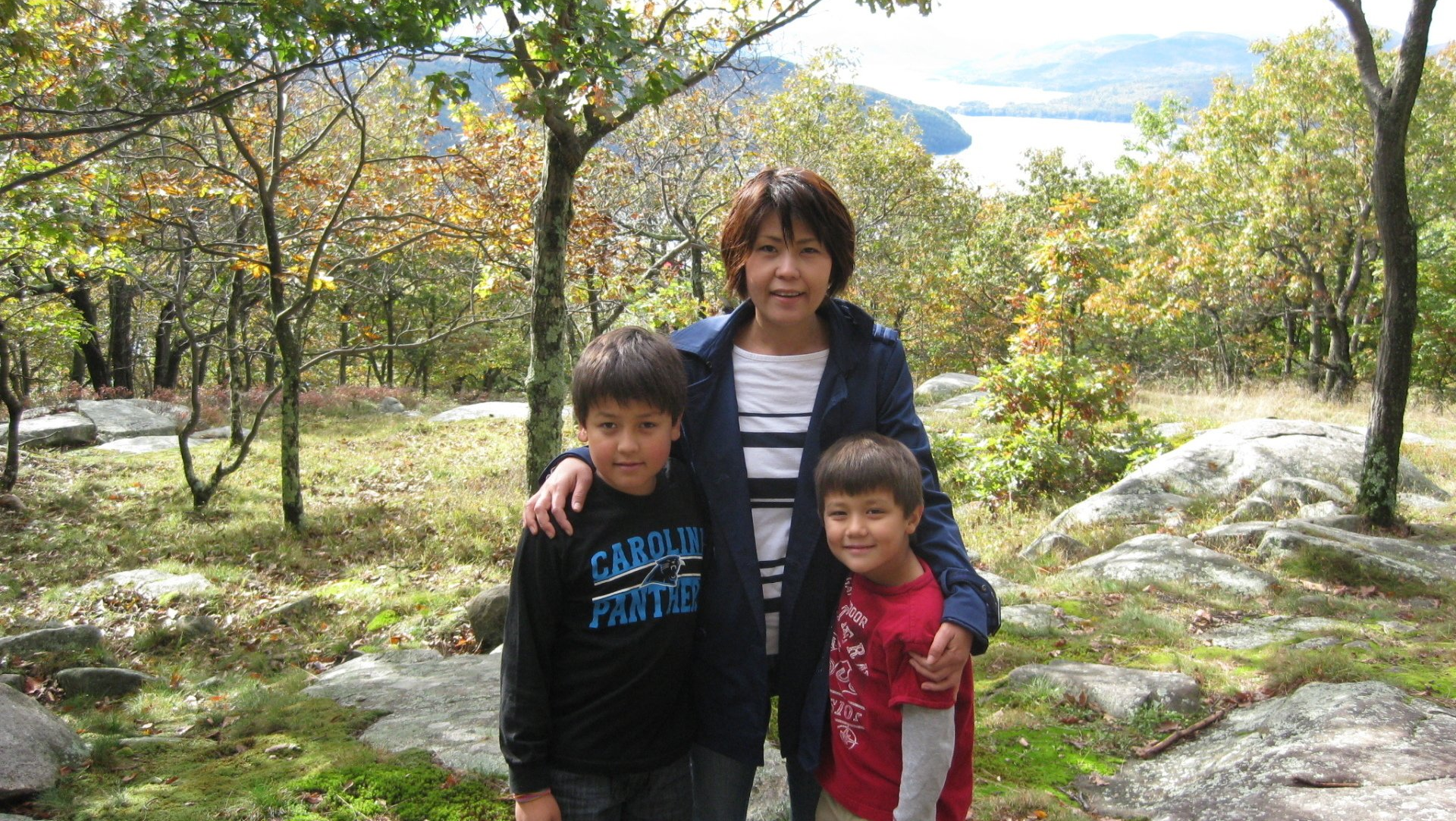Introduction
Japanese language education that you want to continue but is difficult
I am Asami Yoshida, the representative of an online Japanese supplementary school. Thank you for visiting our school website.
This is a supplementary school with classes connected live via the Internet, which was established by cooperating and supporting each other to overcome the problems of bilingual education from the meeting of mothers who sent their children to a supplementary school in Connecticut, USA.
Sports games, music concerts, practice days, etc. There is no supplementary school nearby, and I have to study at a local school. Hmm?
My eldest son was born in Japan, my second son was born in America, and my husband is an American. In my family living in America, my eldest son starts going to a supplementary school in Connecticut when he is in the middle of the year. After that, I went to supplementary school for 6 years, and in the last year, I got the role of recruiting instructors as the chairman of the steering committee and preparing documents for applying for government subsidies. I met Iwata (currently the representative of our sister school, Retani English Supplementary School), who came as a parent teacher. Three years ago, when she returned to Japan, she learned that she wanted her children to continue the English they had learned in the United States, so she decided to open an online English supplementary school, Retani, and introduced an American teacher. This business started from the fact that I was contracted to help.
Started recruiting American tutors who can give high-quality lessons through my small personal connections, which I usually work in the admissions of the St. Thomas More school boarding school. To be honest, I was skeptical about online classes at first, but when I was asked to supervise the classes from time to time, I was impressed by the shocking sight of teachers and children from different times and places absorbing each other to the fullest. I did. Iwata, who used to be a teacher in Japan and a teacher at a supplementary school in the United States, carefully selected teaching materials, created a lesson plan, and instructed the instructors to give plenty of homework. I was convinced that the method of aiming for children in the same circumstances to work hard with each other and make studying a habit was definitely a powerful educational method. Around that time, I began to feel the limits of taking my sons, who had become absorbed in baseball year after year, to rest from Saturday games and take them to supplementary school every week, partly because of the influence of their father, who was a Red Sox fan and a baseball fan.
"But I don't want you to give up here."
That's when I came up with the idea of an online Japanese supplementary school, a reverse version of Iwata's online school. I can continue to play baseball on weekends, save the trouble of commuting to school far from home (50 minutes by car), be able to participate even when I go on a trip, and most importantly, my children can be watched by experienced instructors from Japan. I really appreciate it. Iwata immediately agreed with the story and cooperated with the class content, technical matters, and the homepage. I go back to Japan twice a year for a boarding school study abroad fair. With their cooperation, we were able to recruit veteran instructors, which are difficult to find in the United States.
In online supplementary classes, 2 to 4 students and a teacher learn Japanese and math textbooks in an online classroom using Google Hangouts. Homework based on the assigned study plan for 40 days a year can be shared via G-mail attachment or drive. You can participate in classes from anywhere with an internet connection, so if you go on a weekend trip and your hotel has a good internet connection, you can take the course if you have a computer and a textbook notebook. Among them, when you can't participate in class due to a sudden fever or traffic jam, we will send you a recording of the class, watch the recorded class, do the homework for the week, and catch up with the next class. Also, set up classes so that they do not overlap with sports or other extracurricular activities.
Current students are from Colorado, Boston, NY and California in the US, and Vancouver, Ottawa, Montreal and Toronto in Canada. In addition, teachers from Japan can be added and classrooms can be entered on the same Internet screen from a time difference of 3 or more.
There, we use teaching materials and textbooks used in Japanese schools, and provide education based on the premise of "educating children based on the Japanese school system so that they can be transferred to Japanese schools at any time."
The online Japanese supplementary school provides Japanese language education services that overcome obstacles such as not being able to continue because there is 〇〇.
Don't give up on Japanese language education, why don't you start now? Would you like to support Japanese language education together with the weight of various issues?
We look forward to your inquiry.
Online Japanese Language School Representative Asami Yoshida April 2013



